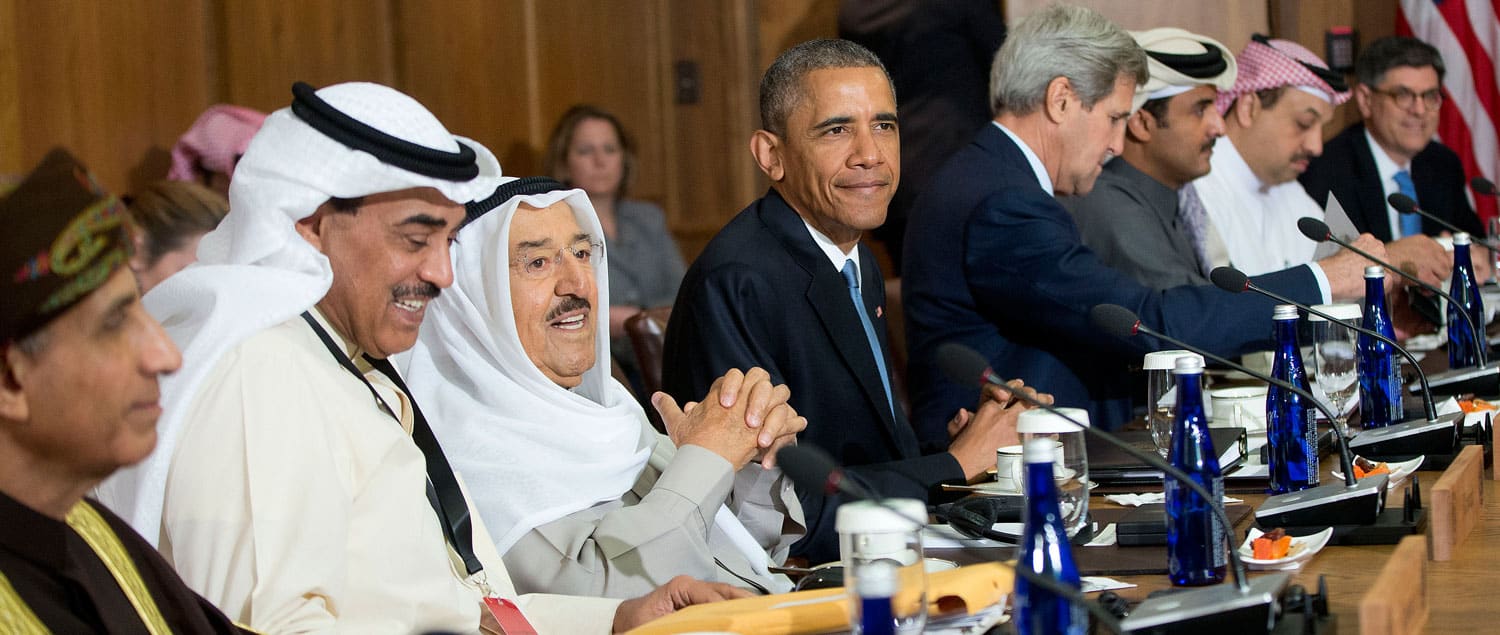This week President Obama convenes a summit with the leaders of the Gulf Cooperation Council, at which he will reportedly urge GCC members to move forward on missile defense cooperation. The range of cooperation under consideration consists of greater information and intelligence sharing, interoperability, additional foreign military sales on both a bilateral and cooperative basis, and joint operational planning. In the context of the P5+1 nuclear negotiations aimed at suspending or slowing Iran’s nuclear weapons program, the GCC would be wise to heed this advice — if only because many of them doubt the anticipated nuclear deal will go far enough in restraining Iran’s nuclear programs and other regional ambitions.
It is indeed unfortunate that missiles as delivery systems were not built into the nuclear framework, an omission that affects Iran’s neighbors more acutely than negotiators in Europe or the United States. Iranian conventional missile capabilities already concern its neighbors even without an Iranian bomb, as witnessed by billions already invested in missile defenses by partners in the region. The time required to purchase or develop, deploy, and train to both offensive missiles and missile defense interceptors far exceeds the relatively short nuclear breakout period Iran is expected to have under the framework. Further missile defense cooperation would help realize the potential of these past investments and help hedge against eventual breakout.
Given shared concerns about Iranian missile programs, the most numerous and diverse in the region, air and missile defense cooperation just might work. Long the beneficiary of foreign assistance from North Korea and elsewhere, Iran has become increasingly self-sufficient for production and a proliferator in its own right, both of rockets and anti-ship missiles like those used by Hezbollah in 2006 to attack an Israeli ship. Iran’s Shahab-3 reportedly has a range of 2,000 kilometers and may be nuclear capable. Other developments of concern include the solid-fueled Sejil, reported guidance improvements, and the recent (but still largely unappreciated) test of a cruise missile said to have a range of 2,500 kilometers.
The idea of missile defense cooperation is not new. Turkey and Israel even briefly pursued joint-production of Arrow in the late 1990s. More recently, in 2012 and again in 2013 and 2014, the U.S.-GCC Strategic Cooperation Forum reaffirmed its intent to work toward “a Gulf-wide, interoperable missile defense architecture.” So far, such coordination and interoperability remain largely aspirational…
Read the full article on War on the Rocks.
